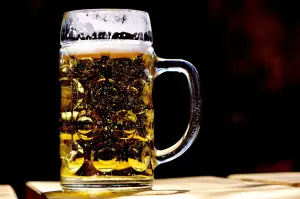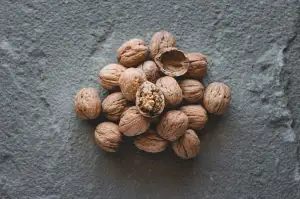Transform Your Body: The Ultimate Lose Body Fat and Gain Muscle Diet Plan

- Understanding macronutrients: Proteins, carbohydrates, and fats
- Calculating calorie needs: Determining the right calorie intake for your goals
- Protein-rich foods: Lean meats, poultry, fish, eggs, and plant-based sources
- Complex carbohydrates: Whole grains, fruits, vegetables, and legumes
- Healthy fats: Avocados, nuts, seeds, and olive oil
- Meal planning: Creating a balanced diet with the right proportions of macronutrients
- Pre- and post-workout nutrition: Fueling your body for optimal performance and recovery
- Hydration: The importance of drinking enough water for fat loss and muscle gain
- Monitoring progress: Tracking changes in body composition and adjusting the diet accordingly
Introduction: A balanced diet plays a crucial role in achieving the dual goals of losing body fat and gaining muscle. While exercise is important, nutrition is equally vital for transforming your body. A well-rounded diet provides the necessary nutrients to fuel your workouts, support muscle growth, and promote fat loss. By understanding the importance of macronutrients, calculating calorie needs, and incorporating protein-rich foods, complex carbohydrates, healthy fats, and proper hydration into your diet plan, you can optimize your body composition and achieve your desired results.
Understanding macronutrients: Proteins, carbohydrates, and fats
Understanding macronutrients is essential for achieving your goals of losing body fat and gaining muscle. Proteins, carbohydrates, and fats are the three main macronutrients that provide energy and support various bodily functions. Proteins are crucial for muscle repair and growth, found in sources like lean meats, poultry, fish, eggs, and plant-based options like tofu and legumes. Carbohydrates provide energy for workouts and can be obtained from whole grains, fruits, vegetables, and legumes. Healthy fats are necessary for hormone production and can be found in avocados, nuts, seeds, and olive oil. Balancing these macronutrients is key to optimizing your diet plan.
Calculating calorie needs: Determining the right calorie intake for your goals
Calculating calorie needs is crucial for achieving your body composition goals. To determine the right calorie intake, you need to consider factors such as age, gender, weight, height, activity level, and goals. A general guideline is to consume fewer calories than you burn to lose body fat and consume more calories than you burn to gain muscle. Consulting with a nutritionist or using online calculators can help you estimate your daily calorie needs accurately. Remember that individual variations exist, so it's important to listen to your body and make adjustments as needed.
Protein-rich foods: Lean meats, poultry, fish, eggs, and plant-based sources
Protein is an essential macronutrient for both losing body fat and gaining muscle. Include lean meats such as chicken, turkey, and beef in your diet. These are excellent sources of high-quality protein. Fish like salmon and tuna are also rich in protein and heart-healthy omega-3 fatty acids. Eggs are a versatile option that provides all the essential amino acids. For plant-based sources, include legumes like lentils and chickpeas, as well as tofu, tempeh, and edamame. These options provide a good amount of protein while being low in saturated fats.
Complex carbohydrates: Whole grains, fruits, vegetables, and legumes
Complex carbohydrates are an essential part of a balanced diet for losing body fat and gaining muscle. They provide the body with sustained energy, fiber, and important nutrients. Whole grains such as quinoa, brown rice, and oats are excellent sources of complex carbohydrates. Fruits like berries, apples, and oranges are also rich in complex carbs and provide vitamins and antioxidants. Vegetables like broccoli, spinach, and sweet potatoes are low in calories but high in fiber and nutrients. Legumes such as lentils, chickpeas, and black beans are not only packed with complex carbs but also offer a good amount of protein. Including these foods in your diet will help fuel your workouts and support muscle growth while promoting fat loss.
Healthy fats: Avocados, nuts, seeds, and olive oil
Healthy fats play a crucial role in our diet, especially when it comes to losing body fat and gaining muscle. Avocados, nuts, seeds, and olive oil are excellent sources of these healthy fats. Avocados are packed with monounsaturated fats that can help reduce belly fat. Nuts and seeds provide a good amount of omega-3 fatty acids, which have anti-inflammatory properties and support muscle growth. Olive oil is rich in oleic acid, a healthy monounsaturated fat that aids in reducing inflammation and promoting heart health. Incorporating these healthy fats into your diet can help you achieve your body composition goals while still enjoying delicious food.
Meal planning: Creating a balanced diet with the right proportions of macronutrients
Meal planning is a crucial aspect of achieving a balanced diet that supports both fat loss and muscle gain. To create a well-rounded meal plan, it is essential to understand the right proportions of macronutrients. Proteins should make up around 25-30% of your daily calorie intake, as they are vital for muscle repair and growth. Complex carbohydrates should account for 45-50% of your calories, providing energy for workouts and promoting satiety. Healthy fats should comprise approximately 20-25% of your diet, aiding in hormone production and nutrient absorption. By carefully selecting foods from each macronutrient group, you can ensure a balanced diet that supports your body composition goals.
Pre- and post-workout nutrition: Fueling your body for optimal performance and recovery
Pre- and post-workout nutrition plays a crucial role in fueling your body for optimal performance and aiding in recovery. Before a workout, it's important to consume a combination of carbohydrates and protein to provide energy and support muscle growth. Good pre-workout options include a banana with Greek yogurt or a whole grain toast with peanut butter. After your workout, aim to consume protein-rich foods such as grilled chicken breast or a protein shake within 30 minutes to promote muscle repair and growth. Pair it with complex carbohydrates like brown rice or sweet potatoes to replenish glycogen stores.
Hydration: The importance of drinking enough water for fat loss and muscle gain
Hydration plays a crucial role in both fat loss and muscle gain. Water is essential for various bodily functions, including digestion, nutrient absorption, and muscle contractions. Staying hydrated helps to optimize metabolism and maintain energy levels during workouts.
Drinking enough water can also aid in appetite control by reducing cravings and promoting feelings of fullness. Additionally, adequate hydration supports the removal of waste products from the body, which is important for overall health.
To ensure proper hydration, it is recommended to drink at least 8 cups (64 ounces) of water per day. However, individual needs may vary depending on factors such as activity level and climate. It's important to listen to your body's thirst signals and drink water throughout the day.
In conclusion, staying properly hydrated is crucial for achieving optimal fat loss and muscle gain. Make sure to prioritize drinking enough water alongside following a balanced diet and exercise routine to achieve your desired body composition goals.
Monitoring progress: Tracking changes in body composition and adjusting the diet accordingly
Monitoring progress is crucial when it comes to achieving your body composition goals. Tracking changes in body composition allows you to assess whether your current diet plan is effective or if adjustments need to be made. One way to track progress is by regularly measuring your body fat percentage and muscle mass. This can be done using specialized scales, calipers, or through professional assessments. By comparing these measurements over time, you can determine if you are losing body fat and gaining muscle as desired. If progress is not being made, it may be necessary to adjust your diet by either increasing or decreasing calorie intake or adjusting macronutrient ratios. Remember that everyone's body is different, so what works for one person may not work for another. It's important to listen to your body and make changes accordingly to continue progressing towards your goals.
In conclusion, achieving a healthy body composition requires a well-rounded diet plan that focuses on balanced macronutrient intake. By understanding the importance of proteins, carbohydrates, and fats, and calculating the right calorie needs for your goals, you can create a diet that promotes fat loss and muscle gain. Incorporating protein-rich foods such as lean meats, poultry, fish, eggs, and plant-based sources, along with complex carbohydrates like whole grains, fruits, vegetables, and legumes will provide essential nutrients for your body. Additionally, including healthy fats from avocados, nuts, seeds, and olive oil will support overall health. Proper meal planning with the right proportions of macronutrients is crucial for success. Pre- and post-workout nutrition plays a vital role in fueling your body for optimal performance and recovery. Staying hydrated by drinking enough water is also important for fat loss and muscle gain. Monitoring progress through changes in body composition helps to adjust the diet accordingly. By following these guidelines and maintaining consistency, you can transform your body into a healthier version of yourself.
Published: 21. 02. 2024
Category: Health



